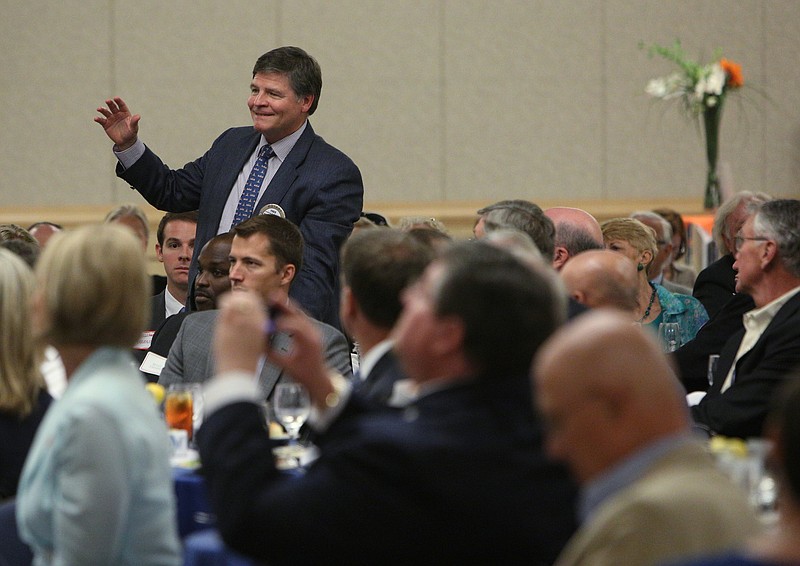NASHVILLE - Tennessee's opioid crisis is helping fuel a state government agency's budget request for 30 new case managers to handle the influx of children coming into state custody as their addicted parents wind up in trouble.
Children's Services Commissioner Bonnie Hommrich made the request to Gov. Bill Haslam Monday morning as the governor kicked off Day One of public hearings on executive branch agencies' needs for the upcoming fiscal year 2019 budget.
Noting that the number of children and youths in state custody has increased from 8,100 to 8,600, Hommrich said that's contributed to the need for the new case managers.
"Those are primarily related to the increase that we've seen in custody numbers. And we believe a lot of that increase is the result of, you know, the opioid crisis," Hommrich said, adding, "and we continue to receive custody for a number children with serious mental health problems."
The department is asking for an additional $2.13 million for 30 new case management professionals. Of that, $798,900 would come from the state and the remainder for federal and other sources.
Hommrich said the hope is to get the number of children in state custody down.
Children's Services spokesman Rob Johnson later said the the 30 new case managers "will be deployed to areas in East Tennessee, where the opioid situation is most pronounced."
The governor told reporters it is "discouraging that the number of kids that are in state custody [has] gone from about 8,100 to 8,600. A lot of that's a reflection of the opioid crisis."
Tennessee has one of the nation's worst problems with use of deadly legal and illegal painkillers. At least 1,631 Tennesseans died in 2016, a more than 10 percent jump from the 1,451 in 2015, according to the Tennessee Department of Health.
The governor all this week is hearing from the heads of 23 state executive branch departments and agencies. As part of his instructions, Haslam has asked officials to offer up cost reductions of 2.5 percent.
Children's Services' spokesman Johnson said the department has proposed abolishing 12 current positions, some of which have long gone unfilled, to hit the governor's 2.5 percent spending reduction effort.
That will help offset the hiring of the 30 new case managers, Johnson said.
The governor noted that in a number of instances he won't make the actual cuts agencies propose. But it does provide the administration a road map of sorts as officials shape the annual spending plan.
Haslam said cuts offered up in the past by departments helped the state cut half a billion dollars from the budget over the past seven years.
Haslam said revenues in the current fiscal year are so far running about $400 million above projections. But he emphasized he doesn't expect the state to see the $1 billion surplus that materialized last year.
Funding major state responsibilities including K-12, higher education and TennCare can run $350 million or more, Haslam noted.
Contact Andy Sher at asher@timesfreepress.com or 615-255-0550.

